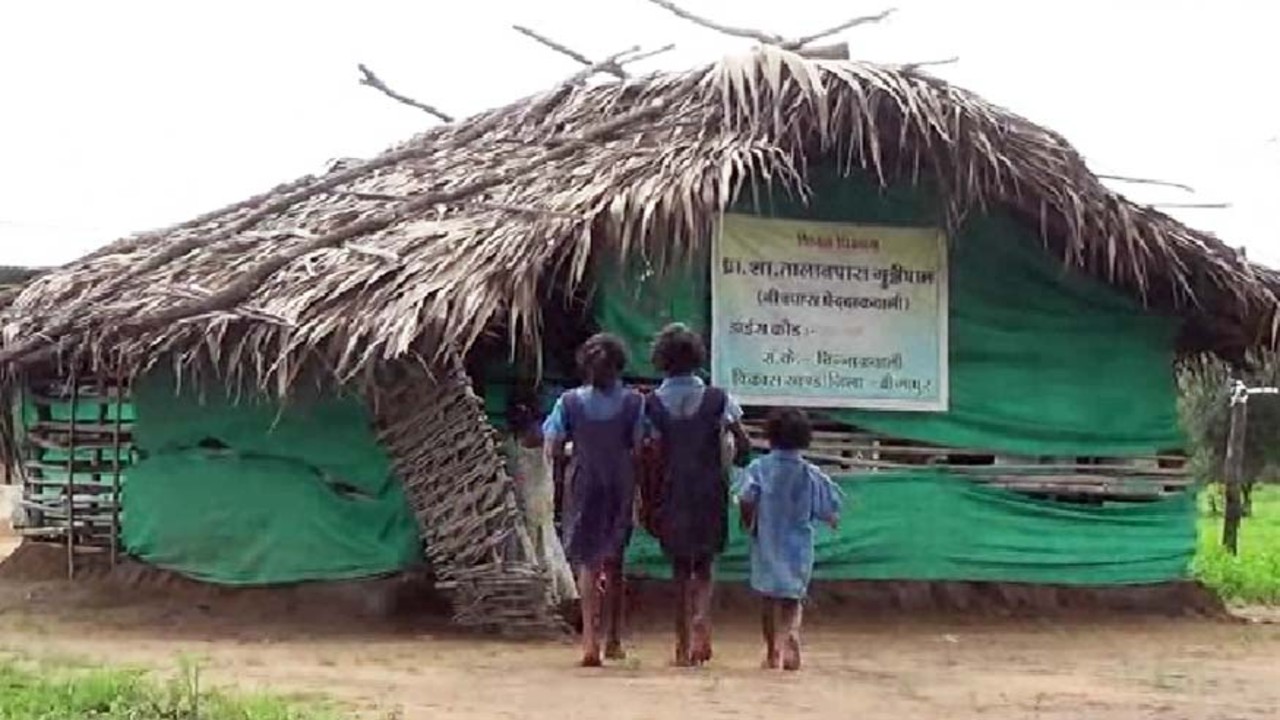In Sukma’s remote village, children fight for education in a makeshift hut
Currently, the school has about seven students in classes 1 to 5. Conditions are not ideal, but the community's support for the school remains strong.
Dinesh Akula | Published On: Jul, 4, 2025 | 12:31 PM

Sukuma, Chhattisgarh: In “Digital India,” many classrooms are being upgraded with technology, including smartboards and laptops. However, in the village of Kamarajpad in Sukma district, Chhattisgarh, the situation is very different. While other places enjoy digital classrooms, children here struggle to receive basic education in a small hut made of shrubs, with a leaking roof that fails during the rain.
For 15 years, education in Kamarajpad has taken place in this temporary shelter, which offers little protection from the weather. During the rainy season, the tarpaulin roof leaks, interrupting lessons. On stormy days, children must leave the school, losing valuable learning time.
Despite these hardships, the children of Kamarajpad come to school every day, showing remarkable determination. They often sit on the damp ground without benches, facing the heat in summer and the cold in the rainy season. They understand that education is their chance to escape poverty.
The school itself reflects the villagers’ strong sense of community spirit. After years of requesting a proper school building from local leaders, the villagers built a makeshift school themselves using tarpaulin, wood, and local materials. Local teachers have worked hard to keep the school running despite the lack of basic facilities.
Laxman, a villager, remembers that the hut school has been in use since the Salwa Judum movement against the Naxals began. Villagers have been requesting a permanent building for years, and last year, they finally received approval for construction. However, work has not yet been finished, so children still study in the temporary hut.
Currently, the school has about seven students in classes 1 to 5. Conditions are not ideal, but the community’s support for the school remains strong. Banashgopal Baiga, the teacher in charge, says that weather conditions make teaching difficult. The children often have to deal with rain or extreme heat, but the villagers continue to help the school by providing materials and support.
Kamarajpad is in an “extremely sensitive” area, according to Block Education Officer P. Srinivas Rao. The lack of paved roads complicates inspections by authorities. However, he assures that the school building’s construction is finally underway, with an expected completion date in the next few months. Until then, the children of Kamarajpad will continue to learn in very basic conditions, demonstrating resilience in the face of challenges.
In this remote village, the struggle for education is real. It is not just about the lack of proper buildings, but also about the obstacles that many children in rural India face. Despite these challenges, the desire to learn remains strong in Kamarajpad. As these children study in their makeshift classrooms, they know not just from textbooks but also valuable lessons about endurance, hope, and the power of education.







